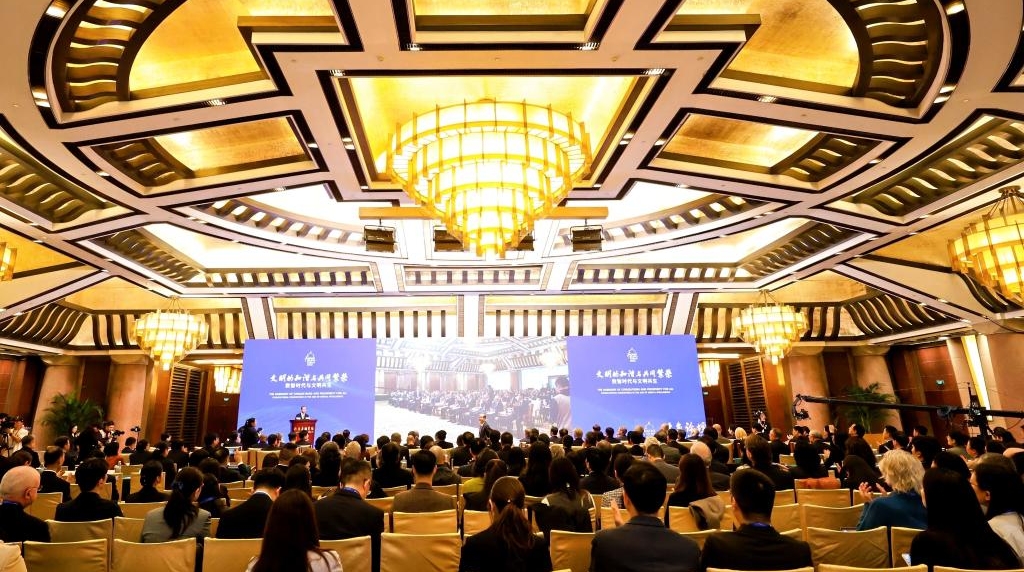Guests attend the 2025 Beijing Forum in Beijing, capital of China, Nov. 7, 2025. (Peking University/Handout via Xinhua)
Global experts and scholars on Friday gathered at a forum in Beijing to explore the role of digital intelligence as a vital driver of humanity's common prosperity.
In the digital era, technological innovations and intelligent creations should serve as tools to empower cross-civilization exchange, said Gong Qihuang, president of China's Peking University (PKU), while addressing the opening ceremony of the 2025 Beijing Forum.
"More than ever do we need to reaffirm the value of cross-border cooperation, and to work together to guide technologies to serve the common fortune of people around the world," Gong said.
Themed "Civilizational Coexistence in the Age of Digital Intelligence," the three-day forum has brought together more than 400 experts and scholars from over 36 countries and regions.
Sixteen sideline sessions will be held to discuss the impact of digital intelligence -- especially artificial intelligence (AI) -- in areas such as global governance, social development, industrial transformation, education and health care.
"I think the possibilities that AI creates for raising the standard of living for people are tremendous," said Jeffrey Lehman, vice chancellor of New York University Shanghai, stressing the potential of AI in promoting the equal advancement of health care and agriculture, particularly in the developing world.
In terms of the challenges of global AI competition, experts in attendance have expressed more hope than worry. "The multilateral collaboration in frontier technologies like AI is indispensable," said Park Jin, former foreign minister of the Republic of Korea, noting that if harnessed wisely, AI can offer more creative solutions to erase rivalries and build trust.
Park also highlighted China's significance in global efforts to advance digital intelligence. "China, with the best talent pool, abundant data resources and a dynamic market, has a major role to play."
In recent years, China has attached great importance to digital intelligence for national development. Last month, the Communist Party of China leadership included the acceleration of digital and intelligent technologies, as well as the advancement of the Digital China Initiative, in their recommendations for formulating the country's 15th Five-Year Plan (2026-2030) for economic and social development.
With an efficient market, complete industrial system and well-functioning government, China boasts great advantages in digital innovation, said Justin Lin Yifu, dean of the Institute of New Structural Economics at PKU and former World Bank chief economist.
"China's lead in digital intelligence will not only benefit itself," Lin said. "Other developing countries can apply its open-source, innovative technologies easily, with lower costs and fewer risks, providing great opportunities for the common prosperity of the whole world."
Co-sponsored by Peking University, the Beijing Municipal Education Commission and the Chey Institute for Advanced Studies, the annual forum has attracted more than 7,000 guests and scholars from over 80 countries and regions since 2004.


 Share:
Share: 





 京公網安備 11010802027341號
京公網安備 11010802027341號